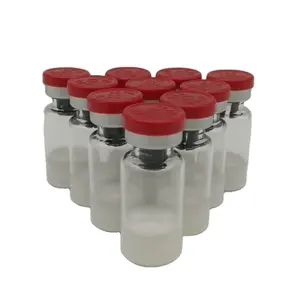Popular in your industry














Related Searches:





















Top categories
About potassium nitrate production
Also known as saltpeter, potassium nitrate is a chemical compound with the formula KNO3. This colorless, crystalline salt is a naturally occurring mineral source of nitrogen and potassium. Potassium nitrate has a variety of applications, ranging from its historical use in gunpowder and fireworks to its modern applications in food preservation, fertilizer production, and even medicinal uses. This compound is integral in various industries due to its versatility and diverse chemical properties.
The process of potassium nitrate production
The production of potassium nitrate nitrate involves several key steps that combine potassium chloride, sodium nitrate, and ammonium nitrate. The initial step in the production of potassium nitrate is the synthesis of nitric acid through the oxidation of ammonia. This is accomplished through the Ostwald process, which entails catalytic oxidation of ammonia (NH3) to produce nitric oxide (NO), followed by further oxidation to yield nitrogen dioxide (NO2), which is then dissolved in water to form nitric acid (HNO3). The next phase is the neutralization of nitric acid with potassium hydroxide (KOH) to create potassium nitrate (KNO3) and water (H2O). This reaction is as follows: HNO3 + KOH → KNO3 + H2O. The final step involves the crystallization of potassium nitrate, where the resulting solution is evaporated to obtain solid potassium nitrate crystals.
The uses of potassium nitrate
Potassium potassium nitrate is used in a variety of applications, from agriculture to food preservation, and even in certain industrial processes. One of the most common uses of potassium nitrate is as a component of fertilizers, particularly in formulations designed for crops that require a significant source of nitrogen and potassium. In addition to its role in fertilizers, potassium nitrate is also utilized in the manufacture of pyrotechnics, where it serves as an oxidizing agent that, when combined with the fuel, allows for the controlled and energetic release of gases, heat, and light. Potassium nitrate is also used in the pharmaceutical industry, primarily in oral care products like toothpaste and mouthwash due to its desensitizing properties. Furthermore, it finds applications in the food industry, where it is utilized as a preservative, particularly in cured meats such as bacon, ham, and salami.
The advantages of potassium nitrate
There are several advantages to the use of potassium nitrate fertilizer. One of the primary benefits is its ability to provide a readily available source of nitrogen and potassium to plants. This dual nutrient effect is crucial for plant growth, as nitrogen is essential for processes like photosynthesis and protein synthesis, while potassium plays a vital role in osmoregulation, enzyme activation, and overall plant health. Moreover, potassium nitrate is highly soluble in water, which enhances its effectiveness as a fertilizer by allowing for rapid nutrient uptake by plant roots. This solubility also contributes to its use in hydroponic and fertigation systems, where precise nutrient delivery is crucial. Another advantage of potassium nitrate is its versatility, as it can be used in various agricultural settings, including open-field cultivation, greenhouse production, and foliar applications. Additionally, the controlled-release formulations of potassium nitrate offer a sustainable and environmentally friendly approach to nutrient management, reducing the risk of leaching and minimizing the environmental impact.






























